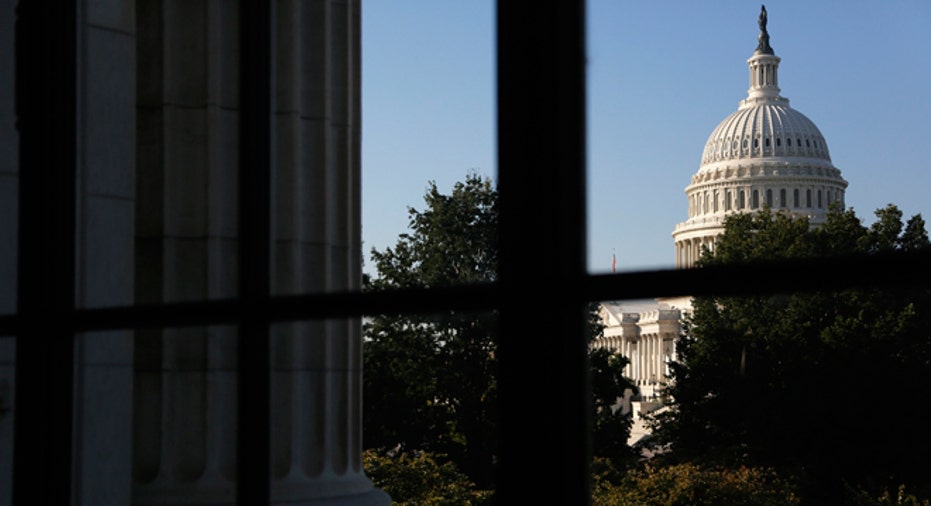American Economic Confidence Lowest Since Lehman Collapse

Confidence in the U.S. economy dropped more in the last week thanks to a government shutdown, gridlocked Congress, and threat of a debt default, than in any week since the collapse of Lehman Brothers in September 2008, according to a new Gallup poll today.
The uncertainty out of Washington sent the organization’s Economic Confidence Index skidding 12 points to -34 last week – the second-steepest plunge since Gallup started tracking economic confidence during the depths of the financial crisis in 2008. Based on two components, the poll assesses America’s viewpoints of current economic conditions in the U.S. and their perceptions of whether the economy is getting worse or better.
According to the poll, 67% of Americans believe the economy is getting worse – the highest percentage since December of 2011. Meanwhile, only 15% of Americans last week said the economy is in excellent or good shape, while 43% said it was poor.
“While the economy is, in many respects, stronger than it was during the 2011 debt ceiling crisis, the current budget debate and government shutdown clearly show that partisan brinksmanship and the uncertainty it causes on Wall Street can negatively affect consumer confidence,” the polling organization said Tuesday.
Glimmers of Hope Temper Congressional Gloom
On day eight of the partial government shutdown, while Americans doubt lawmakers’ ability to reach a compromise, there could be a glimmer of hope for negotiation talks on the horizon. The president is reportedly willing to consider a short-term increase in the nation’s borrowing limit to avoid a default that could happen after the October 17 deadline the Treasury Department said it would run out of cash reserves.
Additionally, according to House leadership sources on Capitol Hill, the legislative body is planning to create a negotiating team through legislation to work on the debt limit and other fiscal issues. The team would be comprised of both parties and talks on the debt ceiling would begin immediately. The legislation would also allow essential government employees – those who are not currently furloughed – to receive their paychecks without delay. Added to that, according to a report from Reuters, the Senate is preparing to introduce a bill this week containing a measure to increase the borrowing limit through 2014, without any deficit reduction components.
While much of the focus of a the talks in D.C. has focused on market reaction to a government shutdown and potential debt default, Barclays’ head of U.S. equity strategy Barry Knapp in a note to clients Monday, said polls will be the likely driver of compromise this time around, not Wall Street. Knapp said the bank agrees with President Barack Obama’s opinion that “this time it’s different,” just not exactly in the same way the president does.
“One potential catalyst for the parties to begin negotiating a compromise would be a lack of a bounce (in polls) for Democrats, either in President Approval or Generic Congressional polls. Because of lags and volatility in polling, we suspect that until roughly the middle of next week there will not be enough evidence that either side is winning or losing in the court of public opinion to spark serious negotiations,” Knapp wrote.
Meanwhile, Bank of America Merrill Lynch warned Tuesday a failure to raise the debt ceiling is the biggest threat to the nation’s economy, and could result in another downgrade to U.S. sovereign debt. Standard & Poor’s stripped America of its pristine ‘AAA’ rating on the heels of a 2011 debt-ceiling fight.
Barclay’s Knapp noted the bank expects talks on a debt ceiling deal to begin late next week and result in a combined debt ceiling increase and stop-gap funding bill to be wrapped into one compromise.
“Given the proximity to the debt ceiling deadline, we would expect a single deal that extends the debt ceiling and a continuing resolution in exchange for something the Democrats want, such as relief from the sequestration cuts, and something the GOP wants, such as delays in the individual mandate perhaps linked to economic metrics,” Knapp wrote.



















